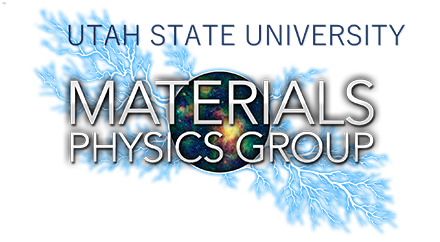Document Type
Poster
Journal/Book Title/Conference
American Physical Society Four Corner Section Meeting, University of Denver, Denver, CO
Publication Date
10-18-2013
Abstract
Dielectric materials subjected to energetic electron fluxes can emit light in several forms. We have observed three distinct types of emissions: (i) short-duration (<1 ms), high-intensity electrostatic discharge (ESD) or “arc” events; (ii) intermediate-duration, high-intensity events which begin with a bright arc followed by an exponential decay of intensity (~10 to 100 sec decay constant), termed “flares”; and (iii) long-duration, low-intensity emission, or cathodoluminescence, that continues as long as the electron flux is on. These events were studied for bulk samples of bisphenol/amine epoxy, using an electron gun with varying current densities (0.3 to 5 nA-cm-2) and energies (12 to 40 keV) in a high vacuum chamber. Light emitted from the sample was measured with high-sensitivity visible and near-infrared video cameras. We present results of the spatial and temporal extent for each type of event. We also discuss how absolute spectral radiance and rates for each type of these events are dependent on incident electron current density, energy, and power density and on material type, temperature, and thickness. Applications of this research to spacecraft charging and light emissions are discussed.
Recommended Citation
Christensen, Justin; Dennison, JR; and Dekaney, Justin, "Diverse Light Emissions from Epoxy Due to Energetic Electron Bombardment" (2013). American Physical Society Four Corner Section Meeting, University of Denver, Denver, CO. Posters. Paper 20.
https://digitalcommons.usu.edu/mp_post/20


